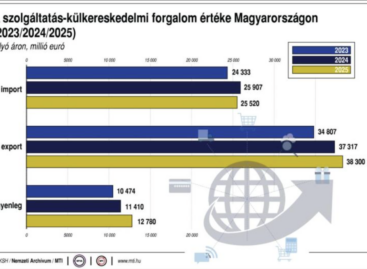Fidelity: The future is in the hands of the Fed
As we approach the year 2023, the world economy faces a combination of challenges, from persistently high inflation and aggressive global policy tightening (led by the Federal Reserve), to the ongoing consequences of the Russian-Ukrainian war and the energy crisis, to weak consumer confidence. and political disturbances, so in its basic scenario, Fidelity always expects a hard landing. In the last quarter of 2022, their self-developed trackers measuring market activity indicated a continuous slowdown, moreover, a recession is likely in the USA and almost certain in Europe and the United Kingdom.

It seems that in the United States, the Fed intends to raise interest rates significantly above the neutral level in order to curb inflation. Fidelity does not expect a turnaround until there is a significant deterioration in hard data, particularly inflation and the labor market. The US housing market is already showing signs of tension, as higher mortgage interest rates and reduced purchasing power of buyers are stifling market activity. However, inflation and the labor market are still strong, prompting the Fed to continue, especially since it underestimated the importance of inflationary pressures last year, so it is now focusing more on current spot data. In this situation, one of the most important concerns of Fidelity experts is that the Fed pays too much attention to retrospective data, especially regarding the labor market, even though by the time it shows signs of weakness, it may already be too late for the American economy.
Real interest rates have been positive for some time and are approaching pre-Global Financial Crisis (GFC) levels in some parts of the yield curve. We have repeatedly said that the financial system (due to the high debt stock) cannot tolerate positive real interest rates for a longer period of time, because this may endanger financial stability. With liquidity and assets already under significant pressure, the system may begin to crack. There is a danger that if the Fed follows through on what it is now promising and doesn’t stop until inflation returns to close to 2%, something worse could turn out of a “normal” recession.
Related news
Eurozone economic growth accelerated in February
🎧 Hallgasd a cikket: Lejátszás Szünet Folytatás Leállítás Nyelv: Auto…
Read more >KSH: The foreign trade surplus in services was 3.1 billion euros in the fourth quarter of last year
🎧 Hallgasd a cikket: Lejátszás Szünet Folytatás Leállítás Nyelv: Auto…
Read more >How does the forint exchange rate affect consumer prices?
🎧 Hallgasd a cikket: Lejátszás Szünet Folytatás Leállítás Nyelv: Auto…
Read more >Related news
Shape the future, in other words: build a brand!
🎧 Hallgasd a cikket: Lejátszás Szünet Folytatás Leállítás Nyelv: Auto…
Read more >MBH Analysis Center: The Hungarian economy may accelerate again in 2026, but the Iranian war carries serious risks
🎧 Hallgasd a cikket: Lejátszás Szünet Folytatás Leállítás Nyelv: Auto…
Read more >SPAR is preparing for an Easter rush: it is filling its stores with 570 tons of smoked meat products
🎧 Hallgasd a cikket: Lejátszás Szünet Folytatás Leállítás Nyelv: Auto…
Read more >








